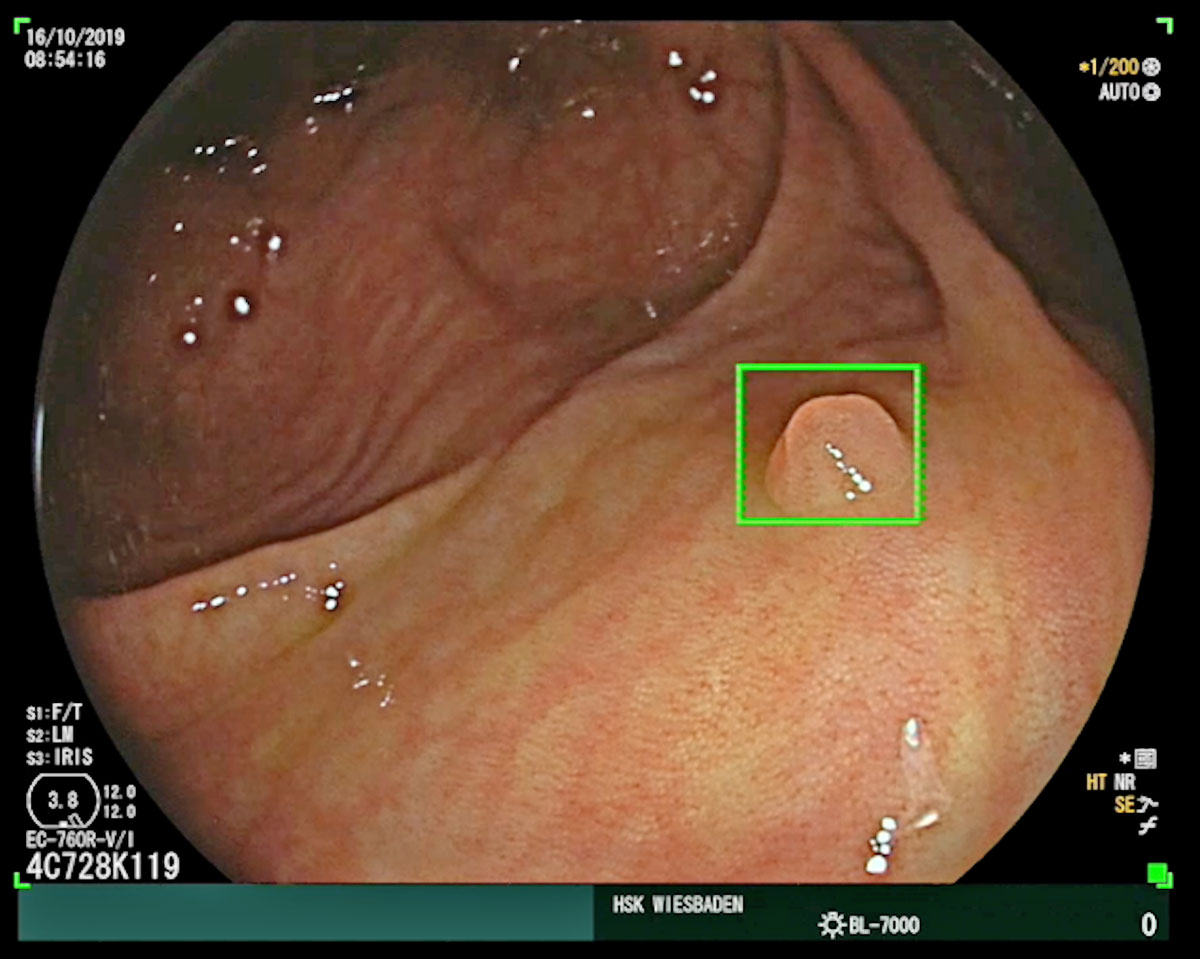

Colon cancer is the second most common type of cancer in men and women. The risk of developing colon cancer, however, can be reduced with regular screenings. The gold standard diagnostic tool here is a colonoscopy, which is recommended in Germany for men from the age of 50 and women from the age of 55. It is recommended that people with a family history of colon cancer undergo this examination from the age of 40.
The colonoscopy ideally needs to be able to detect all of the precancerous stages. Such a precancerous stage refers to a change in the tissue that is not yet malignant but has the potential to develop into cancer. Some types of polyps – growths in the mucous membrane of the intestine that are often left to grow unnoticed over many years – are precancerous stages. With one type of polyp in particular, namely adenomas, there is a high risk that they will develop into colon cancer, and the larger the adenoma, the more likely the affected person is to develop cancer. Besides, there is also an extremely wide range of different types of polyps.

During a screening colonoscopy, the teams of medics need to ensure that all precancerous stages are reliably detected and removed. This is the only way to significantly reduce the risk of a malignant tumor developing. But the variety of different types means that it is sometimes difficult to reliably diagnose polyps. Sessile polyps or those that occur behind folds can be overlooked during even a thorough colonoscopy. For a long time, special endoscopic procedures have been used for this, with the aim of minimizing the rate of overlooked polyps.
But the latest development in colonoscopies is the use of artificial intelligence, whereby a computer algorithm detects polyps in the intestinal mucosa during an endoscopy. As soon as the computer has made a find and detected a polyp, it sets off an optical and acoustic signal, and the examining physician is notified of the finding. Various different artificial intelligence systems have already been approved for use in colonoscopies.

The state-of-the-art Colon Cancer Center in the Helios Dr. Horst Schmidt Hospital has been routinely using artificial intelligence in the diagnosis of intestinal polyps for a long time.
“The use of AI in preventive colonoscopies significantly increases the rate of polyp detection. This allows us to offer the patient a much more precise screening without additional risk for our patients”, says Prof. Dr. Ingmar Mederacke, Director of the Clinic for Gastroenterology, Hepatology and Endocrinology.
The reliability of these systems is incredibly high. Studies have shown that artificial intelligence leads to a significantly increased detection rate when it comes to polyps. And the good news is that doctors aren’t being replaced, but are instead able to use the computer to support their diagnostics. AI provides additional information that would be overlooked by the human eye.


